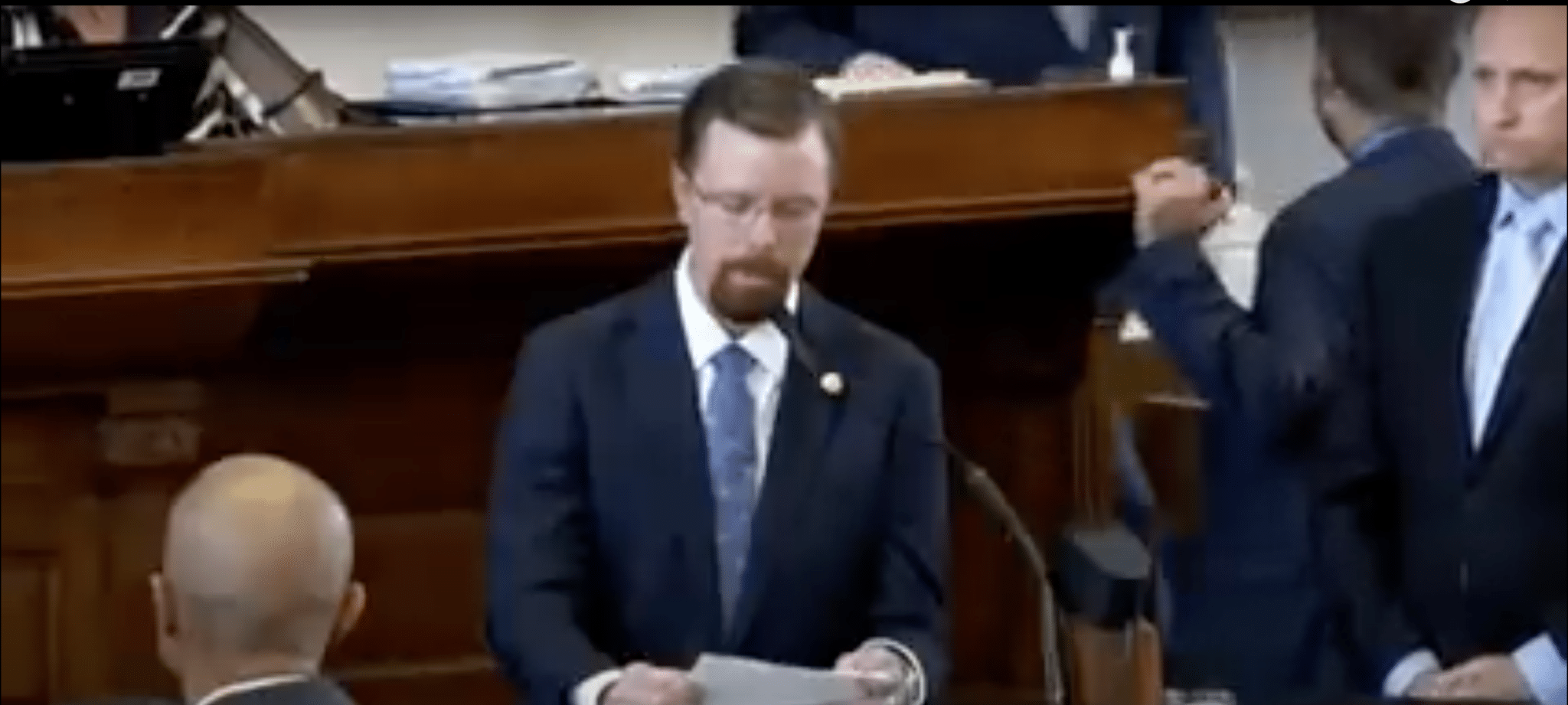Texas Speaker of the House Dade Phelan signed civil arrest warrants for 52 House Democrats late Tuesday night, an attempt to bring back the lawmakers who fled to D.C. in July and have remained there over a month to prevent Texas from passing a voting reform bill.
While the Democrats were undivided in their resolve to remain in D.C. during the first special session, which ended Friday, their unity began to fragment when Abbott immediately called another session on Saturday. As several Democrats returned to Austin, the House chamber was only five members short on Monday of the 100 lawmakers required to have quorum and conduct official business.
The pieces of legislation causing the Democrats to boycott the special session are Senate Bill 1 and House Bill 3 — which have been characterized as promoting “Election integrity” by Republicans and “voter suppression” by Democrats. The bills restrict drive-thru voting and 24-hour early voting, prohibit local election officials from sending citizens applications to request a mail-in ballot unless they ask for them, and set ID requirements for mail-in voting.
The move to sign warrants came only hours after the Texas Supreme Court overturned a Sunday ruling by a state district judge stating that the representatives could not be arrested. Texas Gov. Greg Abbott and Phelan had petitioned the lower court’s decision.
The warrants are scheduled to be delivered to the House sergeant-at-arms for enforcement on Wednesday, but Democrats will not be charged with criminal offenses, jailed, or fined — law enforcement officers carrying out the arrests will simply bring them to the House chambers to proceed with the special session.
Republican Rep. Travis Clardy told The American Spectator that they worked hard during the legislative session and are prepared to work equally hard in the second special session. “I’m truly hopeful that our Democratic colleagues will come back to the Texas House as soon as possible, preferably by 10 o’clock tomorrow morning, and preferably peacefully,” he said.
Clardy emphasized that while the Democratic narrative is that the voting reform legislation is tied to Trump’s challenge to the presidential election, that is not actually the case. Rather, he said, the bills are part of the usual, ongoing effort to clean up Texas’ election code in the same manner that legislators regularly amend the health code or transportation code.
“These bills are intended to make it easier for eligible people to vote, whether by mail or in-person, early or on election day — but we are determined to make it hard for people to cheat, and if they’re determine to break the law, we are even more determined to have the law enforced and have them suffer the consequences.”
Rep. Ana-Marie Ramos called out fellow Democrats who decided to return to the chamber Monday, tweeting, “you all threw us under the bus today! Why?”
One of the first to return, Rep. James Talarico expressed satisfaction with the national impact the Democratic boycott had, tweeting, “I’m home! Our quorum break shined a national spotlight on the TX voter suppression bill and pushed Congress closer to passing a federal voting rights act to override it. I’m confident they will.”
But Senate Republicans blocked the federal voting rights “For the People Act” — which aims to regulate state election laws in a manner which Senator Ted Cruz (R-Tex.) said “would constitute a federal government takeover of elections” — early Wednesday morning when Senate Majority Leader Chuck Schumer tried to bring it to the floor.
When Abbott called the second special session Saturday, his statement made it clear that the Democrats’ actions would not deter him from pursuing his legislative priorities: “I will continue to call special session after special session to reform our broken bail system, uphold election integrity, and pass other important items that Texans demand and deserve.”
As Clardy put it, “These are thoughtful and reasonable measures to make it easier for Texans to vote… and to have confidence that their vote counts, counts as much as anyone else’s, that their vote is secure and they can have confidence in our election system. We owe it to our state to protect against voter fraud and illegality in our elections.”
























